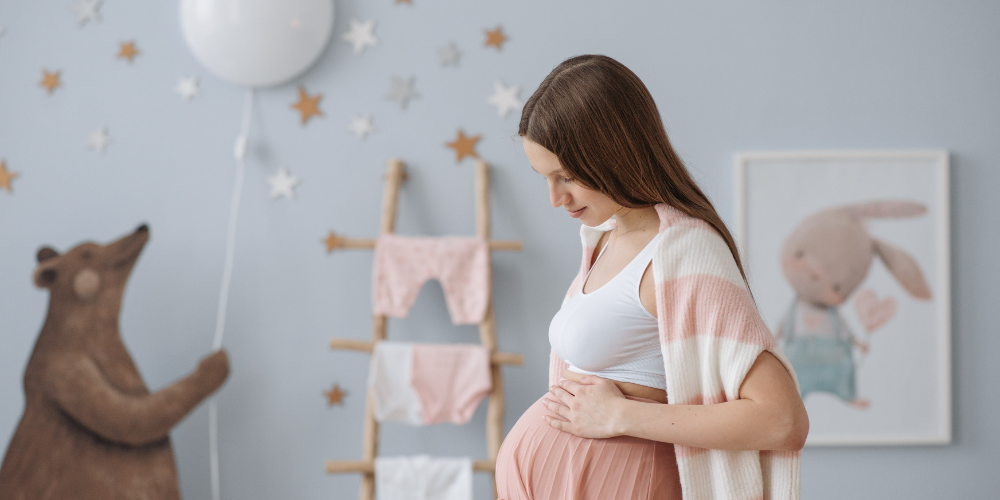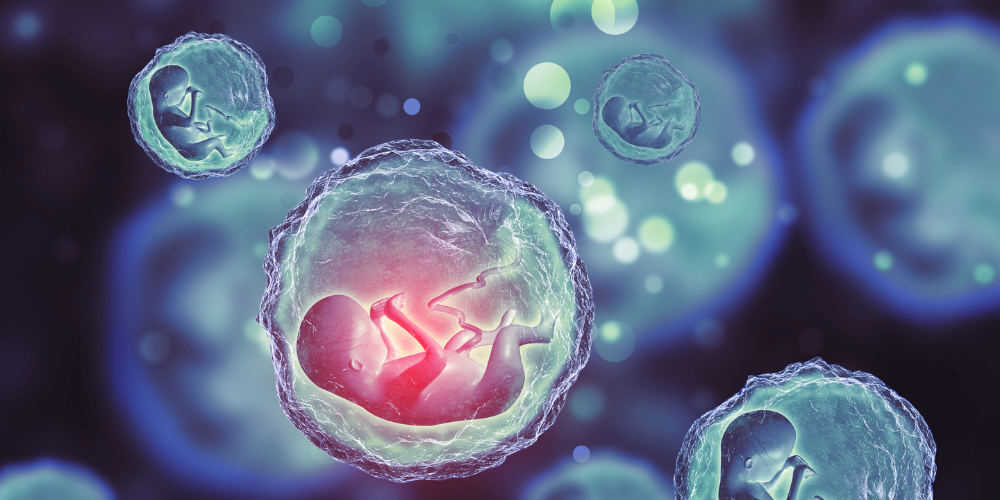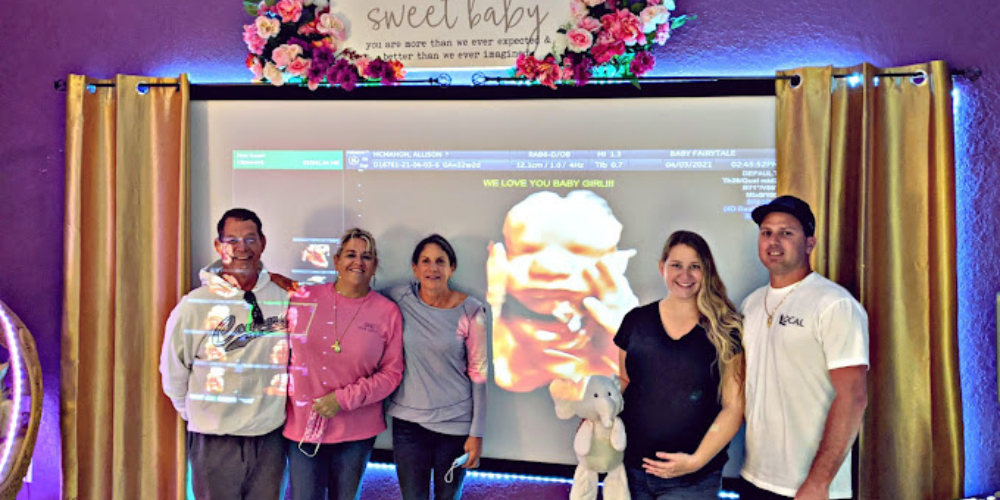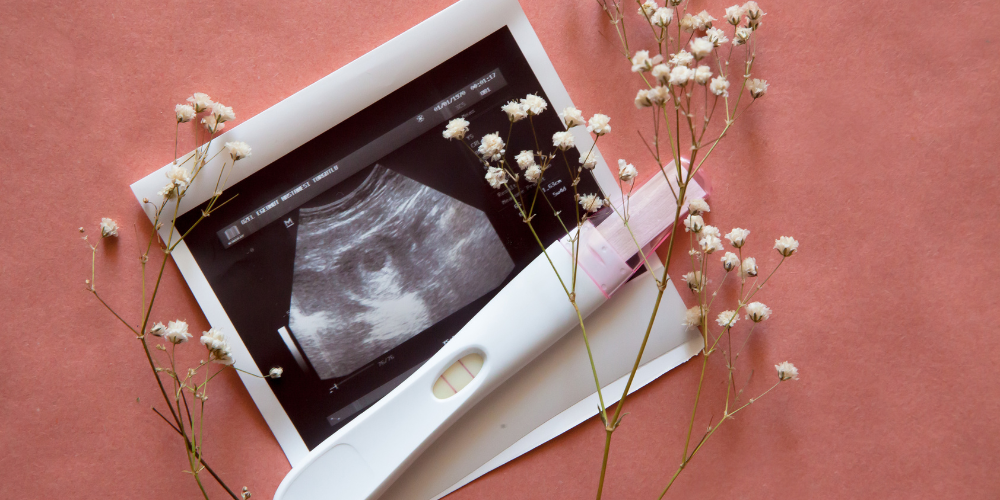10 Fascinating Facts About Baby Development in the Womb

Picture this: right now, somewhere in the world, a tiny human is having their very first dance party. In another corner of the globe, a little one is busy practicing their thumb-sucking technique like they're preparing for the Olympics. And get this, there's a baby who's already developing strong opinions about whether they prefer their mom's morning coffee or her afternoon snack.
All of this is happening in the most private VIP lounge on Earth: the womb. It's not just a holding room where babies wait around for nine months. Oh no. It's more like a high-tech training facility where the most incredible transformations happen every single day. While we're all going about our busy lives, there's this whole other universe of activity happening that's absolutely mind-blowing.
So grab a cup of tea (or whatever makes you happy) and let me tell you some stories that'll make you see pregnancy in a completely different light.
The Tiniest Performers You've Never Seen
They Start Dancing Before You Even Know It
Here's something that'll surprise you: babies become little movers and shakers incredibly early. By just 8 weeks, they're already wiggling around in there, stretching and flexing like they're doing baby yoga. Of course, moms can't feel these early performances yet, but they're happening.
What makes this even more incredible is that these aren't just random movements. These little ones are actually working out, building their muscles and figuring out how their bodies work. It's like they have their own personal gym membership.
And here's the really cool part... some babies are gentle, graceful movers, while others are total acrobats who seem to think the womb is their personal trampoline. When parents see their first early pregnancy ultrasound, they sometimes catch these early movements and get their first glimpse of their baby's personality. Are they getting a calm little soul or a future gymnast? Time will tell.
The World's Most Exclusive Concert Venue
Your baby has front-row seats to the best show in town, and that show is your life. Around 20 weeks, their hearing develops enough that they become active listeners to everything happening around them. They hear your voice, your partner's voice, your favorite music, even the rumble of your stomach when you're hungry.
But they're not just listening passively. Scientists have discovered that babies will actually move in rhythm to music. Can you imagine that? Your little one might be grooving to your playlist right now.
The sweetest part of all this? Your voice becomes their favorite sound. It's the first voice they'll recognize, the one that makes them feel safe and loved. This is why those special heartbeat listening sessions can be so magical. You're not just hearing a heartbeat, you're listening to the very beginning of your conversation together.
Your Baby's Developing Superpowers

They're Already a Food Critic
This one will blow your mind. By around 13 to 15 weeks, your baby has fully formed taste buds, and they're actually experiencing flavors through the amniotic fluid. That means when you eat that slice of pizza or enjoy those strawberries, your baby is getting a little taste too.
Some researchers think this is why kids often love the foods their moms craved during pregnancy. It's like they're getting familiar with the family menu before they even arrive. So if you've been obsessing over Mexican food lately, don't be surprised if your little one grows up loving tacos.
They're Training for the Real World
Babies are basically professional students while they're in the womb, practicing all the skills they'll need after birth. They practice breathing movements (even though there's no air to breathe), they swallow, they hiccup, and yes, many of them become expert thumb-suckers.
These practice sessions are so important. Babies who suck their thumbs in the womb often continue this soothing habit after they're born. It's their way of self-comforting, something they learned all on their own in their cozy little world.
The Plot Twists Nobody Tells You About
The Gender Mystery Starts Early
While most parents wait for their gender determination ultrasound around 15 to 16 weeks to find out if they're having a boy or girl, the actual decision happened way back at conception. By 7 weeks, the baby's body already knows which way it's going and starts developing accordingly.
It's wild to think that this huge piece of information that families get so excited about has actually been decided since day one. The baby's just been keeping it a secret until the ultrasound technology can catch up and see what's been happening all along.
Your Baby Is Stronger Than You Think
By the time the second trimester rolls around, babies develop some serious strength. They can make a fist, they can kick hard enough that you'll definitely feel it, and some little acrobats can do complete flips in there.
Some babies get so active that you can actually see their movements from the outside. Picture this: you're sitting there minding your own business when suddenly a little hand or foot creates a bump that moves across your belly. It's like they're saying, "Hey mom, I'm in here!"
This is why those growth tracking ultrasounds between 18 and 26 weeks can capture such amazing images. Babies are moving around, stretching, sometimes even seeming to wave at the camera like they know they're having their photo taken.
The Hidden Genius Inside
They're Already Learning Languages
Get ready for this: your baby is working on language skills before they're even born. They're listening to the rhythm and melody of whatever language you speak, learning the patterns and sounds that make up your family's way of communicating.
By the time they're born, babies can already tell the difference between their mother's native language and foreign languages. If you speak multiple languages at home, your baby's brain is already starting to process all of them. How incredible is that?
They Live in Their Own Personal Spa
The amniotic fluid surrounding your baby isn't just sitting there doing nothing. It's constantly changing and being refreshed, and your baby actually helps with this process by swallowing and recycling the fluid. They're basically helping to maintain their own little ecosystem.
This fluid does so much more than just give them space to move around. It protects them from bumps and jolts, helps keep their temperature just right, and gives them the freedom to practice all those movements they'll need after birth.
The Grand Finale Preparations

They're Getting Ready for Their Big Debut
In those final weeks of pregnancy, babies go through some pretty amazing changes to get ready for life on the outside. They develop a layer of fat that'll help them regulate their body temperature, their lungs mature so they can breathe air instead of fluid, and they practice all the reflexes they'll need for feeding and surviving.
During this time, detailed ultrasounds can show incredibly lifelike images. You can see their little faces, their expressions, even catch them yawning or stretching. It's like getting a sneak peek at the person you're about to meet.
They March to Their Own Beat
Here's something that explains a lot: babies develop their own internal clocks while they're still in the womb. They have their own patterns of when they're active and when they rest, and these patterns often don't match up with mom's schedule at all.
This is why so many moms experience those late-night dance parties where the baby seems most active right when mom wants to sleep. The little one has their own agenda and they stick to it. After birth, this internal clock gradually adjusts to the outside world's day and night cycle, but those early weeks can be quite the adventure.
The Real Magic

When you really think about it, pregnancy isn't just about waiting nine months for a baby to arrive. It's about nurturing this whole other person who's already developing their own personality, preferences, and quirks. Every little kick and hiccup is part of their story, and it's all happening right now.
For families who want to witness some of these incredible developments firsthand, today's ultrasound technology offers amazing windows into this hidden world. Whether it's catching those first tiny movements in an early scan or seeing detailed facial features in later appointments, each visit adds another chapter to your baby's story.
Sometimes medical concerns require more detailed monitoring, and that's where comprehensive diagnostic scans become important. These detailed evaluations help ensure that both mom and baby are healthy and that all this incredible development is happening just as it should.
The journey from conception to birth is filled with thousands of small miracles happening every single day. Most of them happen quietly, without fanfare, in the private world of pregnancy. But each one is building toward that incredible moment when this secret world finally opens up and you get to meet the amazing person who's been growing inside you all along.
The next time you see a pregnant woman, remember that there's this whole other universe of activity happening that's more fascinating than any movie. And if that pregnant woman happens to be you, know that right now, as you're reading this, your baby might be practicing their dance moves, listening to your voice, or maybe just taking a peaceful nap before their next big adventure.
Ready to peek into your own little universe? Every ultrasound appointment is a chance to discover something new about the incredible person growing inside you. Schedule your session today and become part of your baby's amazing development story.
